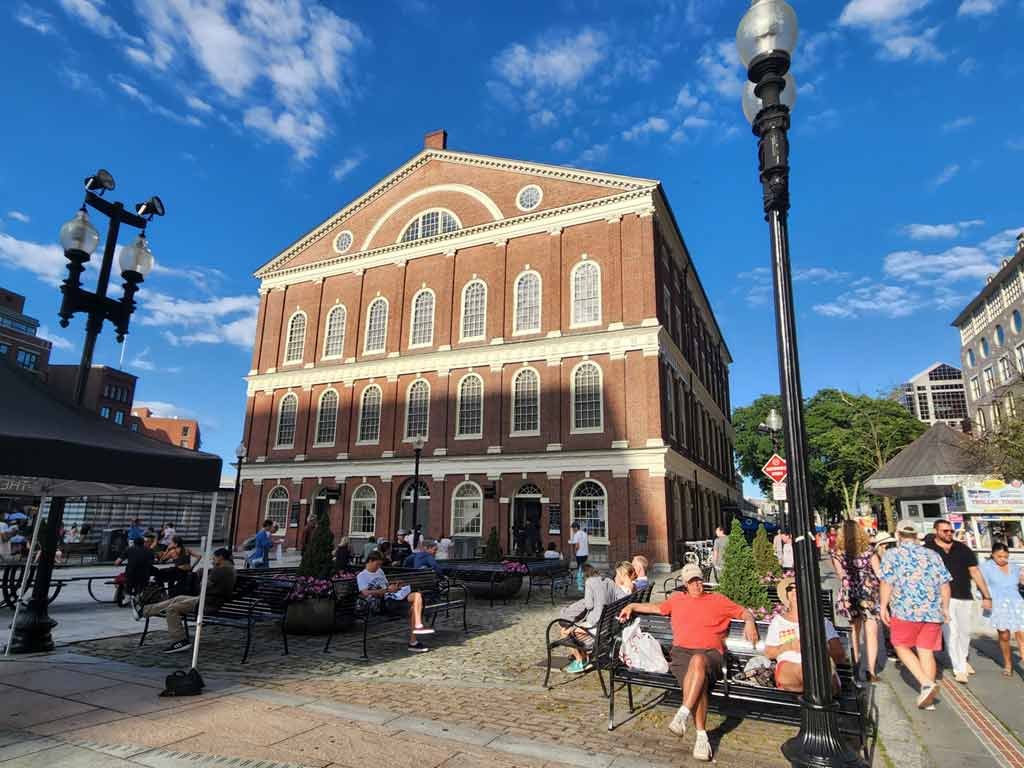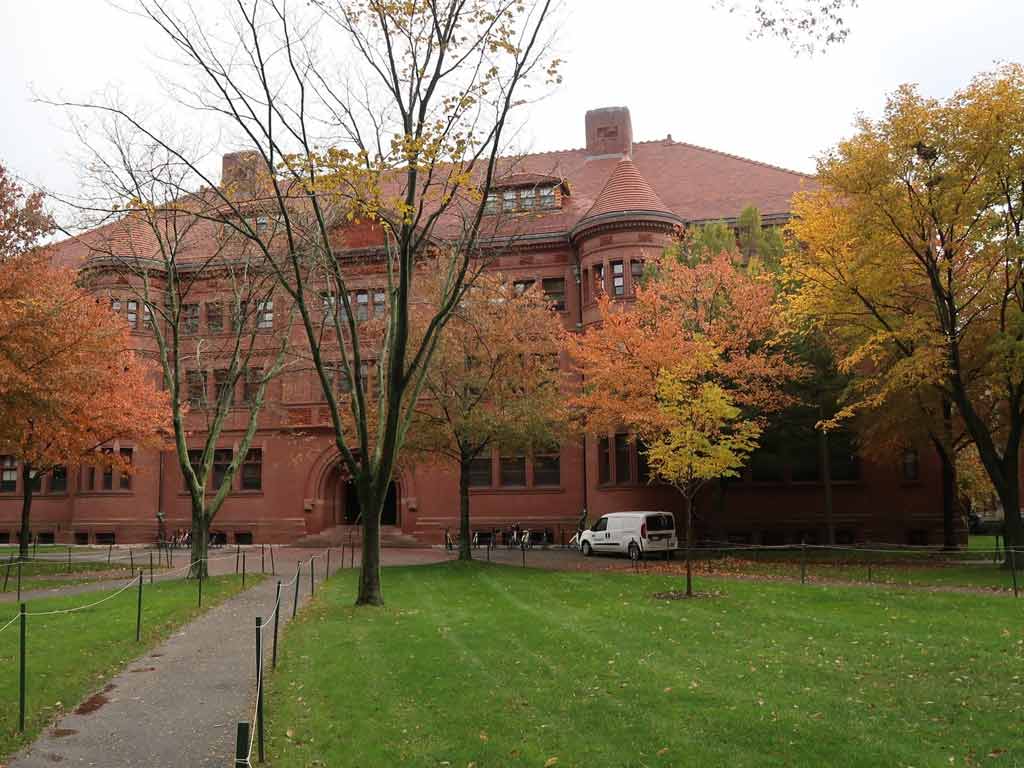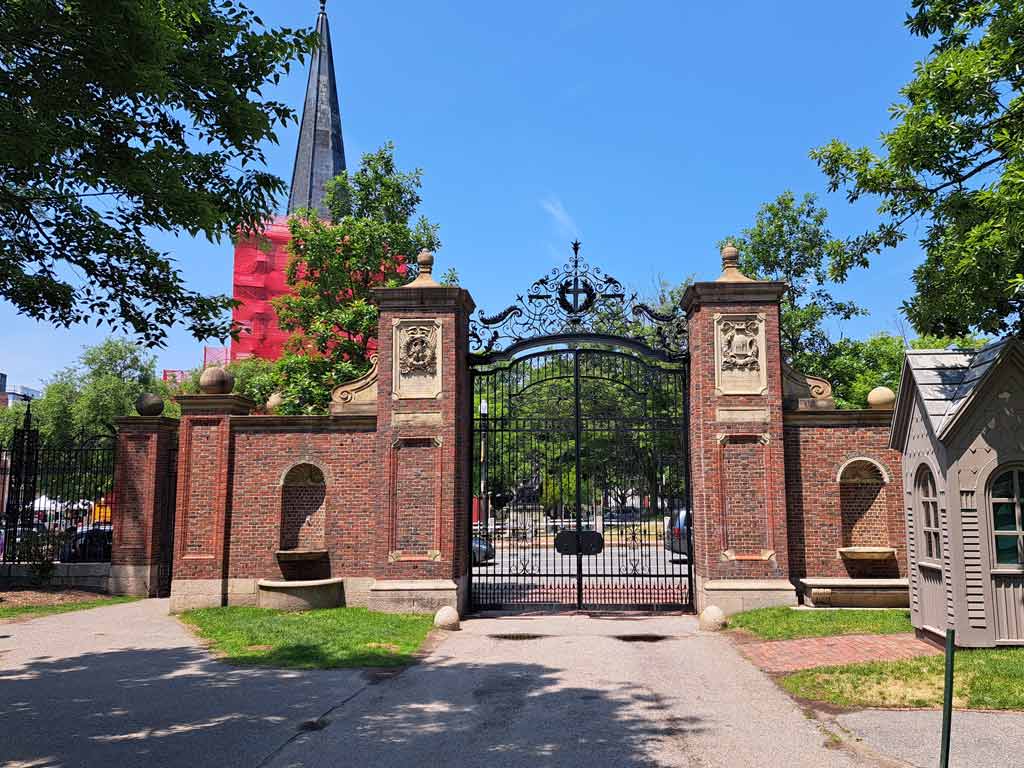Massachusetts boasts a resilient and dynamic economy that stands as a testament to the state’s commitment to innovation, education, and economic diversity.
Renowned for its leading institutions, cutting-edge research, and a thriving technology sector, Massachusetts has become a hub of economic excellence.
From the bustling urban landscape of Boston to the scenic beauty of its rural areas, the state’s economic tapestry is woven with threads of success in various industries.
In this exploration of the Massachusetts economy, we delve into the key pillars that drive its economic engine, including technology, healthcare, education, and finance.
Examining the factors contributing to the state’s economic vitality, such as the innovation ecosystem, job market dynamics, and sustainability initiatives, provides a comprehensive understanding of Massachusetts’ position as a powerhouse in the United States’ economic landscape.
Join us on a journey through the intricacies of the Massachusetts economy, where tradition meets innovation, and economic resilience thrives in the face of evolving challenges and opportunities. Stay focused.
The Basics of Massachusetts Economy
Massachusetts, situated in the New England region of the United States, boasts a diverse and robust economy that has played a significant role in shaping the nation’s economic landscape.
With a rich history steeped in innovation, education, and technology, the state has emerged as a key player in various sectors.
From the bustling urban hubs of Boston to the picturesque landscapes of the Berkshires, Massachusetts offers a dynamic economic tapestry that reflects both tradition and modernity.
Education and Innovation

Home to prestigious institutions like Harvard University and the Massachusetts Institute of Technology (MIT), Massachusetts has long been a global leader in education and innovation.
The state’s commitment to research and development has fostered a thriving knowledge-based economy, attracting top talent and companies at the forefront of technological advancement.
Technology and Biotechnology

The technology sector, particularly in and around the renowned Route 128 corridor, has been a driving force in Massachusetts’ economic success.
From established giants to nimble startups, the state has cultivated a vibrant tech ecosystem.
Additionally, the biotechnology and life sciences industry, with its clusters of world-class biotech firms, has positioned Massachusetts as a hub for groundbreaking advancements in healthcare and pharmaceuticals.
Healthcare and Life Sciences

With a concentration of world-class hospitals, research institutions, and pharmaceutical companies, Massachusetts stands as a powerhouse in the healthcare and life sciences sector.
The state’s commitment to medical research and innovation has not only led to medical breakthroughs but has also contributed significantly to its economic vitality.
Financial Services

The financial services industry plays a crucial role in Massachusetts’ economy. Boston, the state’s capital, is a major financial hub with a strong presence of banks, investment firms, and insurance companies.
The city’s financial sector has been instrumental in driving economic growth and providing essential services to businesses and individuals.
Manufacturing and Defense

Massachusetts has a rich history in manufacturing, and although the landscape has evolved, the state continues to be a hub for advanced manufacturing, particularly in sectors such as aerospace and precision machinery.
Additionally, the defense industry has a notable presence, with companies contributing to national security through cutting-edge technologies and research.
Tourism and Hospitality

The scenic beauty, historical sites, and cultural attractions make Massachusetts a prime destination for tourism.
From the historic Freedom Trail in Boston to the serene Cape Cod beaches, the state’s tourism and hospitality sector plays a pivotal role in its economy, providing jobs and revenue while showcasing its rich heritage.
Green Economy and Renewable Energy

Massachusetts has been at the forefront of environmental sustainability and renewable energy initiatives.
The state’s commitment to a green economy is evident through policies promoting clean energy, the development of offshore wind projects, and investment in sustainable practices.
This sector not only aligns with global environmental goals but also contributes significantly to the state’s economic resilience.
What Is the Main Industry in Massachusetts?

The main industry in Massachusetts is characterized by a diversified economic landscape, but the dominant sectors are technology, education, and healthcare.
The state stands as a global leader in innovation, housing renowned institutions like Harvard University and MIT, driving advancements in science and technology.
The technology sector, particularly in the Route 128 corridor, is a major contributor, fostering a dynamic ecosystem of startups and established companies.
Additionally, Massachusetts boasts a robust healthcare and life sciences industry, with world-class hospitals and biotech firms.
The financial services sector, advanced manufacturing, and tourism also play vital roles in the state’s economy.
While the economy is multifaceted, the emphasis on education, innovation, and technology solidifies Massachusetts’ position as a key player in shaping the future of various industries.
Is It Expensive to Live in Massachusetts?
Massachusetts, with its rich history, vibrant culture, and thriving economy, offers residents a unique quality of life.
However, this comes at a cost, as the state is known for its relatively high cost of living. Various factors contribute to the expense, including housing, transportation, and healthcare.
Understanding the economic dynamics is crucial for those considering making Massachusetts their home.
Housing Costs
One of the primary contributors to the high cost of living in Massachusetts is housing. Urban areas, especially Boston, have competitive real estate markets, with high demand driving up prices.
Renting or purchasing a home, particularly in sought-after neighborhoods, can be a significant financial commitment.
Transportation Expenses

The state’s well-developed public transportation systems, such as the Massachusetts Bay Transportation Authority (MBTA), can ease commuting, but living in proximity to these services often comes with a premium.
Additionally, the cost of owning a car, including insurance and parking, can add to the overall living expenses.
Healthcare Expenditures
Massachusetts is renowned for its world-class healthcare facilities, but access to quality medical services comes with a cost.
Health insurance premiums and out-of-pocket expenses can be relatively high, impacting the overall cost of living for residents.
Education Costs

While Massachusetts boasts top-tier educational institutions, the expenses associated with private schools and universities can be a significant financial consideration for families.
The cost of education, including tuition and related expenses, is a factor that contributes to the overall living expenses in the state.
General Goods and Services
The overall cost of goods and services in Massachusetts tends to be higher compared to the national average.
Everyday items, dining out, and entertainment can contribute to the overall expense of living in the state.
Taxes
Massachusetts has income taxes, property taxes, and sales taxes, which collectively impact the financial burden on residents.
Understanding the tax structure is essential for individuals and families when evaluating the overall affordability of living in the state.
Unemployment Rate in Massachusetts
In October 2023, Massachusetts exhibited a robust labor market with an unemployment rate of 2.8%. This figure reflects the state’s economic resilience and the effectiveness of policies and initiatives aimed at fostering job growth.
The low unemployment rate is indicative of a dynamic and diverse economy, with key sectors such as technology, healthcare, and education playing vital roles in employment generation.
Massachusetts’ commitment to innovation and research has contributed to a thriving job market, attracting skilled professionals and fostering entrepreneurship.
The state’s strategic investments in various industries, coupled with a highly educated workforce, have positioned it favorably in terms of employment opportunities.
The low unemployment rate not only underscores the state’s economic strength but also suggests a positive outlook for individuals seeking employment and businesses looking to thrive in the Massachusetts market.
GDP Growth in Massachusetts
Massachusetts, a key player in the United States’ economic landscape, continually demonstrates economic dynamism, and one crucial metric reflecting this vitality is the Gross Domestic Product (GDP) growth rate.
Examining the state’s economic performance provides insights into its overall health, productivity, and resilience.
In the 1st quarter of 2023, Massachusetts experienced a real GDP growth rate of 2.5% per year, slightly down from the previous quarter’s 2.9%.
This nuanced fluctuation highlights the state’s economic responsiveness to various factors and sheds light on the ongoing economic trends shaping its trajectory.
Economic Momentum in Q1 2023
During the 1st quarter of 2023, Massachusetts sustained a commendable real GDP growth rate of 2.5%, showcasing a continued positive momentum in its economic activities.
This growth is a testament to the state’s diverse economic drivers and strategic positioning in key industries.
Comparison with the Previous Quarter
While the 2.5% growth rate in Q1 2023 reflects a slightly slower pace compared to the 2.9% recorded in the previous quarter, the marginal decline suggests a nuanced economic landscape.
Analyzing the factors contributing to this shift provides valuable insights into the state’s economic strengths and potential areas of focus for sustained growth.
Key Contributing Sectors
Understanding the specific sectors influencing Massachusetts’ GDP growth is crucial.
Whether driven by technology, healthcare, or other industries, identifying the primary contributors provides a comprehensive view of the state’s economic landscape and its capacity for resilience in the face of evolving economic conditions.
Implications for Businesses and Employment
The GDP growth rate directly influences businesses and employment opportunities within the state.
A growth rate of 2.5% signifies a healthy economic environment, potentially translating into increased job creation, investment, and overall economic prosperity for businesses and residents alike.
Economic Forecast and Policy Considerations
Examining the GDP growth rate in Q1 2023 enables policymakers, businesses, and economists to make informed projections.
The data serves as a foundation for crafting strategies, policies, and initiatives that can sustain and enhance Massachusetts’ economic growth in the coming quarters.
FAQs
How does Massachusetts support innovation and entrepreneurship?
Massachusetts fosters innovation through robust R&D initiatives, partnerships between academia and industry, and startup ecosystems.
The state provides funding, incubators, and resources, creating an environment conducive to entrepreneurship, as evidenced by its thriving tech and biotech sectors.
Is the cost of living high in Massachusetts?
Yes, Massachusetts has a relatively high cost of living, primarily driven by housing expenses in urban areas like Boston, transportation costs, healthcare expenditures, and education costs.
Residents need to budget accordingly, considering these factors when planning their finances.
How does the Massachusetts economy impact job opportunities?
Massachusetts’ diverse economy, spanning technology, healthcare, and finance, contributes to a robust job market.
The state’s commitment to education and innovation attracts skilled professionals, fostering employment opportunities.
However, competition in certain sectors, along with the cost of living, should be considered.
What role does the green economy play in Massachusetts?
Massachusetts is committed to sustainability, evident in its green economy initiatives. The state invests in renewable energy, promotes clean technologies, and supports environmentally friendly practices.
This not only aligns with global environmental goals but also contributes significantly to the state’s economic resilience and job creation.
Wrapping Up
Massachusetts’ economy stands as a dynamic tapestry, woven with threads of innovation, education, and resilience.
From the thriving technology sector to world-class healthcare and the commitment to sustainability, the state exemplifies economic vibrancy.
The intricate balance of diverse industries contributes to a robust job market and a high quality of life.
While the cost of living poses challenges, it is a small price for the opportunities and advancements Massachusetts offers.
As the state continues to navigate economic landscapes, its commitment to education, innovation, and sustainability positions it as a beacon of economic prosperity in the United States. Thank you so much.
Jaclyn Lowe